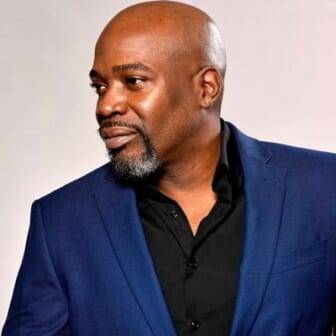‘Black excellence,’ explained
OPINION: The Senate Judiciary Committee’s Monday vote on Supreme Court nominee Ketanji Brown Jackson is a perfect example of what America thinks of 'Black excellence.'

Editor’s note: The following article is an op-ed, and the views expressed are the author’s own. Read more opinions on theGrio.
On Monday, the Senate Judiciary Committee decided that Ketanji Brown Jackson is not qualified to serve on the U.S. Supreme Court.
“The Judiciary Committee—which, like the full Senate, is split evenly between Democrats and Republicans—is almost certain to deadlock 11 to 11 on her nomination,” the Washington Post reports. “That will force Senate Majority Leader Charles E. Schumer (D-N.Y.) to put a measure on the Senate floor discharging Jackson’s nomination from the committee, a vote that is expected to occur Monday evening. Her final confirmation vote on the Senate floor would happen Thursday or Friday.”
And that’s exactly how it happened. But, fret not; this is just how America works. Even though 47 of 50 Senate Republicans are expected to vote against Jackson, she is expected to be confirmed when her nomination is put before the full Senate. And, of course, this has nothing to do with the fact that Jackson would be the first Black woman to sit on the Supreme Court.
“No, I think this is not about racism,” Sen. Cory Booker told CNN’s Dana Bash, “This is about decency. I think that this is not about any kind of partisan effort…I think it’s a kind of thing that a lot of folks, women of all races, have had to endure often when they get into a room that they’re qualified to be in but are yet questioned in ways that are disappointing.”
Technically, Booker’s apologetically Black statement is right. While Jackson’s credentials could serve as a template for how to earn a Supreme Court seat, the fact that the majority of white people elected to America’s highest legislative body are expected to vote against the 1988 national high school oratory champion, magna cum laude Harvard graduate, supervising editor for the Harvard Law Review, cum laude Harvard Law School grad, U.S. Supreme Court clerk and a twice-confirmed federal judge has less to do with her race than her impeccable qualifications.
Jackson may be a great choice for the Supreme Court, but she is still a Black woman who embodies Black excellence. Sadly, to most of this country, these two qualities are wholly incompatible. There are Black people who are not excellent, and there are excellent people who are not Black and, to white people, never the twain shall meet.
In America, “Black excellence” is an oxymoron.
To explain this uncomfortable-but-true concept, theGrio put together this handy-dandy guide to help Black people who dare to be excellent at anything.
1. Know what “Black excellence” means.
“The term Black excellence refers to a high level of achievement, success, or ability demonstrated by an individual Black person or by Black people in general,” explains dictionary.com. “Still, the term itself is typically used in a positive way in the context of the achievements and success of Black people.”
White people probably wrote that.
Although scholars have taken issue with the use of “Black excellence” as reductive or restraining, the phrase originally implied that Black people’s ability to overcome the restraints of racism resulted in a level of skill and aptitude that exceeded the efforts of their white counterparts. The phrase became popular during the Black Power movement of the late 1960s, defined by civil rights leader Whitney M. Young Jr. as “the special responsibility to outthink, outperform and outdo those who would deny to Black people freedom.”
Black excellence exists in spite of white excellence.
2. Be more excellent.
Yes, Black excellence supersedes white excellence.
While being excellent may seem like a no-brainer, because of the way America is set up, Black excellence is often more difficult to achieve than white excellence. Jackson did not have the benefit of a prestigious private high school education, whiteness or a country to catapult her to the front of the line like her white Supreme Court contemporaries. The adage that Black people have to work twice as hard to get half as far as a white man is backed up by actual data.
Take Serena Williams, for instance. Unlike the white excellence of Tom Brady or Babe Ruth, Serena managed to overcome prejudice, poverty and white people’s taunting, making her achievements more special than the white excellence of men like Tom Brady or Babe Ruth. Not only is Serena faster, more athletic and better at her sport than these white dudes, but she was more dominant for a longer period of time. Yet, in the debate over the greatest athlete of all time, Serena’s name is curiously left out.
When the Washington Committee on Black Power included Black excellence and the freedom to simply “let Black people be the best” among its 10 essential demands, Time called it “far less revolutionary than what this country’s founders demanded of England two centuries ago.”
See? White excellence is the noble pursuit of a “more perfect Union.”
Black excellence is achieved in spite of the union’s imperfections.
3. Don’t be too Black.
Jackson is the daughter of two HBCU graduates—a Que Dawg named Johnny Brown and a high school principal named Ellery—who gave their children African names. Everyone in her family chose to work in Black communities for their entire careers. Her brother worked in Baltimore, and her uncles worked in law enforcement in Miami’s Black and brown neighborhoods. When Jackson left a majority-nonwhite high school and entered white spaces, she called out the racists and led protests on her college campus. She wrote her senior thesis on “The Hand of Oppression: Plea Bargaining Processes and the Coercion of Criminal Defendants” before eventually leaving corporate law to become a public defender and be “in the trenches” fighting for her people. She spent the rest of her career reminding people of the racial inequities in the criminal justice system, never afraid to associate with her uncle, who was convicted of cocaine possession …
Nah, this is too Black.
Like most Black people, Jackson knows that even the most liberal white people are sometimes made uncomfortable by unchecked Blackness. To be excellent in the eyes of white people, you must suppress one’s outlandish negrocity. It’s why Barack Obama had to allay the fears of white voters and prove he wasn’t a Muslim while also distancing himself from his Christian pastor because Jeremiah Wright was a little too Black. To Black folks, Raphael Warnock attended an HBCU and pastored a Black church, but to some white people, he had a “lifelong education in Black Liberation Theology and radical politics.” Meanwhile, Amy Coney Barrett can proudly say that she is a longtime member of the People of Praise, a religious group that actually practices radical right-wing politics.
So Ketanji Brown Jackson is a success story about a woman who escaped the “inner city” to attend Harvard Law—a real college. She came from a family dedicated to “public service,” like her parents, who worked in inner-city schools or her other uncle, who became police chief in Miami or her brother, who was a “detective on some of the toughest streets in the inner city of Baltimore.”
See?
You can be Black, but not too Black.
4. Be “Black people.”
If you are Black, you already understand that every decision you make and every thought you have will be attributed to “Black people.” More importantly, when a Black woman reaches a certain level of excellence, they carry the burden of all Black women.
It’s called the “privilege of individuality.”
While Kyrsten Sinema is a “maverick” and rugged individualist, Vice President Kamala Harris and should-be governor Stacey Abrams are “symbols of representation” for all Black women—not just in politics, but in all the professions in the entire universe “in which Black women are underrepresented,” according to an article by a white woman who works in a profession where white women are overrepresented.
Even though Barack Obama didn’t erase 400 years of systemic racism, he single-handedly lifted the aspirations of Black people and deluded the country into believing they lived in a post-racial America. Yet the 43 previous white presidents somehow didn’t prove that America is a racist country. Even two Bush administrations and Donald Trump couldn’t teach that electing wealthy, white men who inherited their power might not be a good idea.
Go figure.
5. Be less excellent.
While this may seem to contradict principle No. 2, Black people understand exactly what it means. When one is surrounded by white mediocrity, being too good at something comes off as threatening or “showing off.”
White people become successful through education and hard work, but Black people take advantage of affirmative action, quotas and “diversity.” Therefore, Jackson can’t brag that she clerked for a Supreme Court justice while a mediocre white man like Brett Kavanaugh was denied a clerkship (only a systemic dispenser of white privilege would ever vote for an unqualified man like Kavanaugh to become a Supreme Court justice).
Senators also accuse Jackson of being “soft on crime” because of her time as a public defender, where she won “uncommon victories against the government that shortened or erased lengthy prison terms,” the Washington Post reports. To be fair, she also served on the U.S. Sentencing Commission—a government agency created by Congress to “reduce sentencing disparities and promote transparency and proportionality in sentencing.”
Yes, Jackson is actually being accused of being too good at her job.
6. Be perfect.
While white excellence comes with the privilege of forgiveness, Black excellence comes with extra scrutiny. To achieve true excellence, a Black person can never make a mistake in their entire life. We have to understand that enslavers like Thomas Jefferson and George Washington were products of their time, but a Black person who is held down by their environment, their circumstances or the entire history of American oppression is not worthy of forgiveness.
If, for instance, 4,000 people called the FBI on Jackson, she’d never be nominated. Thank goodness she’s not a heavy drinker who is dumb (or privileged) enough to tell Congress that she loves consuming large quantities of alcohol. She has promised to recuse herself from a case involving affirmative action at Harvard because she served on the university’s Board of Overseers. Can you imagine what would happen if she was involved with a group tied to critical race theory or was married to someone who wanted to overthrow a free and fair election?
Unthinkable.
7. Be prepared.
Oh wait, you’re not perfect?
Don’t worry, when someone who embodies Black excellence inevitably stumbles, white people won’t suffer the scars. The people who suffer are the “underprivileged,” the children who consider you to be a role model and, of course, the entire “Black community.”
To be fair, we can’t blame this one on white people.
When white supremacist superstar John Wayne tried to attack a Native American Sacheen Littlefeather at the Oscars, he was applauded. (Maybe it’s unfair to call Wayne a white supremacist just because he said: “I believe in white supremacy.”) With one swing of his arm, Will Smith managed to slap my mama, Martin Luther King Jr. and the corpse of Sidney Potier. According to Jonathan Capehart, Smith’s individual act was “a blow to all Black people who have worked for our dignity and acceptance—and especially to the legacy of those Black performers who made Smith’s presence at the Oscars possible in the first place.”
“The Black community also takes a direct hit from Smith,” Kareem Abdul-Jabbar wrote. “One of the main talking points from those supporting the systemic racism in America is characterizing Blacks as more prone to violence and less able to control their emotions. Smith just gave comfort to the enemy by providing them with the perfect optics they were dreaming of.”
And this is why “Black excellence” is an oxymoron in America.
Contrary to these adherents of respectability politics, there is absolutely nothing Black people can ever do that will make white people see us as human beings. Under the blinding spotlight of the white gaze, the pursuit of excellence is an absolutely futile pursuit. There is no school that can educate us enough and no resume that will qualify us to be in their presence.
Let them have white mediocrity as their standard.
Black excellence is for us.

Michael Harriot is a writer, cultural critic and championship-level Spades player. His book, Black AF History: The Unwhitewashed Story of America, will be released in 2022.
TheGrio is FREE on your TV via Apple TV, Amazon Fire, Roku, and Android TV. Please download theGrio mobile apps today!



